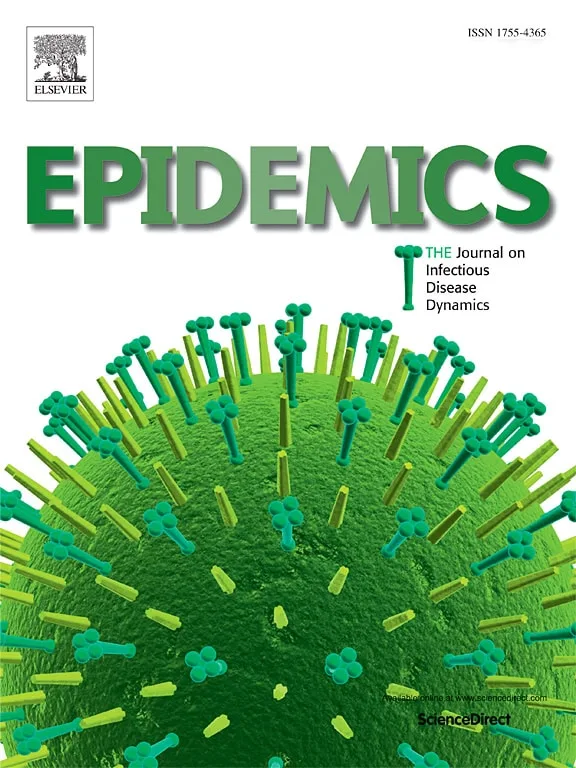
Lectures from renowned speakers
The programme will include lectures by invited speakers supplemented by contributed oral and poster presentations.
Infelizmente, não oferecemos suporte total ao seu navegador. Se for possível, atualize para uma versão mais recente ou use o Mozilla Firefox, o Microsoft Edge, o Google Chrome ou o Safari 14 ou mais recente. Se não conseguir e precisar de suporte, envie seu feedback.
Gostaríamos de receber seu feedback sobre essa nova experiência.Diga-nos sua opinião abre em uma nova guia/janela
30 November – 3 December 2025 | Paradise Point, San Diego, USA

Join us at EPIDEMICS 10 to share another three days of intense dialogue on the latest ideas, data, insight, models and methods in infectious disease dynamics.
This conference regularly attracts over 500 scientists, with representatives from many of the major research groups in this area worldwide. If you want to meet many of your peers in this field, this is the place to go.
Clearly, research on SARS-CoV-2 will continue to play a major role at the meeting. The following is a list of potential session topics, as usual open to all infectious diseases of humans and animals.
Within-host dynamics and immuno-epidemiology
Evolution and phylodynamics in infectious diseases
Ecology, Climate and infectious diseases
Machine learning, AI and infectious diseases
Integration of new data streams in infectious disease surveillance and transmission models, including wastewater and genomic sequences
Dynamics and consequences of antimicrobial resistance
Policy, economic aspects, and decision support for control and prevention
Statistical approaches for infectious diseases (including calibration approaches for complex mechanistic models, methods for large-scale genomic analyses)
Social, spatial, behavioural and network aspects of interaction
Problems related to the "end game" of eradication
Zoonoses and other cross-species events
Multi-host and multi-pathogen/parasite systems
Forecasting and scenario projections
Problems in vaccine-preventable infections & vaccination strategy
Problems in neglected tropical macroparasitic diseases
Conference hashtag #EPIDEMICS10 abre em uma nova guia/janela
Special session proposals: 25 April 2025
Abstract submission: 20 June 2025
Author and early registration deadline: 19 September 2025
Epidemics - The Journal on Infectious Disease Dynamics
Epidemics abre em uma nova guia/janela publishes papers on infectious disease dynamics in the broadest sense. Its scope covers within-host dynamics of infectious agents and dynamics at the population level, particularly the interaction between the two.
Areas of emphasis include: spread, transmission, persistence, implications and population dynamics of infectious diseases; population and public health as well as policy aspects of control and prevention; dynamics at the individual level; interaction with the environment, ecology and evolution of infectious diseases, as well as the population genetics and molecular evolution of infectious agents.
We welcome unsolicited suggestions for Special Issues. Please contact one of the Editors-in-Chief if you have suggestions and/or are willing to serve as a guest editor.
We are currently looking for researchers willing to act as Guest Editors for the following topics:
The impact of climate change on epidemic risks
Interactions of environment and infectious diseases
Nowcasting of epidemics


The programme will include lectures by invited speakers supplemented by contributed oral and poster presentations.

Share the latest ideas, data, models and methods in infectious disease dynamics. Abstracts invited for talks and posters by 20 June 2025. In a new trial the organisers are also inviting proposals for special sessions by 25 April 2025.

Choose from a variety of sponsorship and commercial options to raise your profile and position your company as a thought leader in the community.
Epidemics - The Journal on Infectious Disease Dynamics
Epidemics abre em uma nova guia/janela publishes papers on infectious disease dynamics in the broadest sense. Its scope covers within-host dynamics of infectious agents and dynamics at the population level, particularly the interaction between the two.
Areas of emphasis include: spread, transmission, persistence, implications and population dynamics of infectious diseases; population and public health as well as policy aspects of control and prevention; dynamics at the individual level; interaction with the environment, ecology and evolution of infectious diseases, as well as the population genetics and molecular evolution of infectious agents.
We welcome unsolicited suggestions for Special Issues. Please contact one of the Editors-in-Chief if you have suggestions and/or are willing to serve as a guest editor.
We are currently looking for researchers willing to act as Guest Editors for the following topics:
The impact of climate change on epidemic risks
Interactions of environment and infectious diseases
Nowcasting of epidemics


The programme will include lectures by invited speakers supplemented by contributed oral and poster presentations.

Share the latest ideas, data, models and methods in infectious disease dynamics. Abstracts invited for talks and posters by 20 June 2025. In a new trial the organisers are also inviting proposals for special sessions by 25 April 2025.

Choose from a variety of sponsorship and commercial options to raise your profile and position your company as a thought leader in the community.